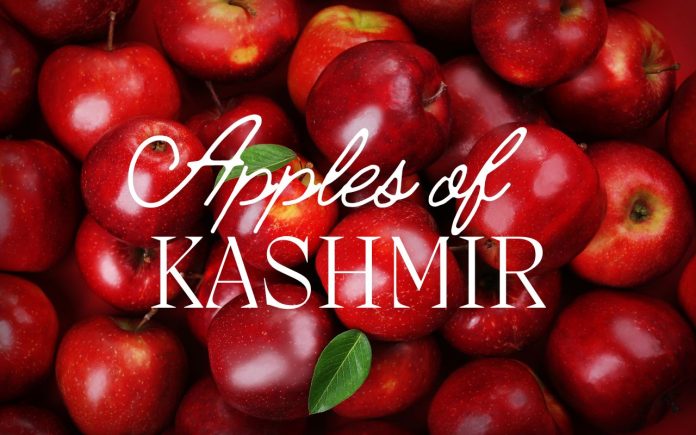Sumedha Manhas
We all have heard the popular phrase ‘An apple a day, keeps the doctor away’ as children. However, in the lush valleys of Kashmir however, where apples are more prized than prescriptions, this saying takes on a flavor far sweeter than mere health advice. Among orchards that could tempt Eve herself, every crisp, juicy bite of an apple truly gives us the taste of ‘Paradise on Earth’.
Apples find their historical roots dating back to the 12th century in Kashmir, chronicled by Kalhana in the Rajatarangini. Their planned cultivation and reputation as a favored fruit for travelers are documented milestones in North India’s rich history. Apples have been cultivated in the Kashmir Valley since ancient times; with notable Mughal emperors and the Sultan of Kashmir, Zain ul Abdin, playing pivotal roles in its promotion during the 15th century.
The legacy of support from successive governments of Jammu and Kashmir, consistently funding horticulture departments, has further advanced the region’s apple-growing industry. The Department of Horticulture aims to expand the Modified High-Density Plantation Scheme to cover 5,500 hectares of land in Jammu and Kashmir by 2026.
For Lakhs of Kashmiri farmers in Shopian, Ganderbal and Anantnag, Apple growing has become the main source of growing income over paddy cultivation. With varieties like Red Delicious, American, Maharaji, Razakwari, Chemora, Kashmiri Golden and Amber, the UT has recorded more than 15 lakh metric tons of apples annually, contributing more than 75 percent to India’s total apple production.
The Red Delicious Apple, renowned globally and extensively cultivated in Pulwama, Shopian, and Sopore regions of Kashmir, is distinguished by its deep red blush, smooth texture, and deliciously sweet flavor. Shopian is particularly renowned for producing the highest quality of this variety, which is abundantly harvested across the valley, primarily from September to October.
Farmers in areas like Baramulla are diversifying their orchards to produce more exotic varieties of Apples. This is not only because of the consumer demand, but also because of the economic value of these apples. Due to its higher price tag, a box of Red Velox apples fetches nearly 30 percent more than the traditional variety. As a result, growers are increasingly transitioning from traditional to exotic varieties in pursuit of greater profits.
In recent times, the Ambri variety of apples can be rarely found in the markets, one of the reasons being this apple’s vulnerability to diseases. The new generation of horticulturists have been diligently addressing the shortcomings of the current Ambri variety by developing a hybrid known as Lal-Ambri, which combines Ambri with Red Delicious. This new apple aims to revive the glory of our esteemed local produce.


